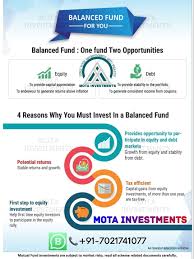
Fidelity guidelines can be used to help you make informed decisions about your retirement and ensure your plan is on the right track. These guidelines are built on four interrelated metrics, which include your age and your pretax income. Your current savings and volatility in asset allocation. They are designed to provide you with a starting point for your retirement journey, but should be customized to your personal situation.
The guidelines recommend saving at least three times your annual income in the early years of a career and as high as eight times by age 60. A professional advisor can help you decide what you should save or how much. The goal is to ensure that you are saving as much as possible and using your money wisely.

Fidelity suggests that you increase the percentage of your income that is devoted to saving over the 15 years to retirement. According to the 45% rule, you should save at least 45% of your pretax income for retirement. Fidelity recommends investing in diversified investments such as dividend-paying shares, certificates, deposits, bonds, annuities, and certificates. These investments will provide steady income through retirement. Fidelity recommends investing based on your tolerance for risk and your savings habits as you move closer to retirement.
Fidelity recommends saving at least 10x your salary by age 67. You should aim to retire with a minimum of $45,000 if you make $50,000 per month. These guidelines do not take into account other retirement expenses, such as long-term care or medical bills. Deferring a portion your salary to a retirement plan (401(k)) can help you increase your retirement savings. A savings account at work can be used to make a catch up contribution of up $6,500 for 2022.
Fidelity provides a variety of financial planning services that will help you reach your financial goals. They can help avoid an IRA to IRA conversion, help you create a financial plan, as well as help you keep it up. These tools can help you understand your long term goals and how they are being met by the market. These resources are available for free.
Fidelity offers tools to help you monitor and maintain your financial plan. Fidelity's myFiTage tool analyzes your current financial goals, savings behavior and helps you to identify your Financial Independence target age. Fidelity provides MyFiTage at no cost. It allows you to track your savings and personal expenses. This will allow you to track your spending and help you save long-term.

Fidelity recommends that you save at least three times your annual salary for retirement. You should also consider saving for health care costs in retirement. Although a HSA is one way to reduce these costs, it is important to also save for traditional Medicare. Medicare provides coverage for seniors 65 years of age and over. Medicare costs include prescription drugs, doctor visits, and physical therapy. Medicare premiums are also a part of the total cost for health care.
FAQ
What's the difference between passive income vs active income?
Passive income refers to making money while not working. Active income requires effort and hard work.
You create value for another person and earn active income. You earn money when you offer a product or service that someone needs. This could include selling products online or creating ebooks.
Passive income allows you to be more productive while making money. However, most people don't like working for themselves. So they choose to invest time and energy into earning passive income.
Problem is, passive income won't last forever. If you wait too long to generate passive income, you might run out of money.
In addition to the danger of burnout, if you spend too many hours trying to generate passive income, It's better to get started now than later. If you wait to start earning passive income, you might miss out opportunities to maximize the potential of your earnings.
There are three types to passive income streams.
-
These include starting a business, owning a franchise or becoming a freelancer. You could also rent the property, such as real-estate, to other people.
-
Investments - these include stocks and bonds, mutual funds, and ETFs
-
Real estate - This includes buying and flipping homes, renting properties, and investing in commercial real property.
How can a beginner make passive money?
Begin with the basics. Once you have learned how to create value, then move on to finding ways to make more money.
You might even already have some ideas. If you do, great! However, if not, think about what you can do to add value to the world and how you can put those thoughts into action.
Online earning money is easy if you are looking for opportunities that match your interests and skills.
If you are passionate about creating apps and websites, you can find many opportunities to generate revenue while you're sleeping.
You might also enjoy reviewing products if you are more interested writing. Or if you're creative, you might consider designing logos or artwork for clients.
Whatever you decide to focus on, make sure you choose something that you enjoy. It will be a long-lasting commitment.
Once you've identified a product/service which you would enjoy helping others to buy, you will need to determine how to monetize that product or service.
You have two options. You can either charge a flat fee (like a freelancer) or you can charge per project (like an agent).
In each case, once your rates have been set, you will need to promote them. This includes sharing your rates on social media and emailing your subscribers, as well as posting flyers and other promotional materials.
Keep these three tips in your mind as you promote your business to increase your chances of success.
-
e professional - always act like a professional when doing anything related to marketing. You never know who may be reading your content.
-
Know what you're talking about - make sure you know everything about your topic before you talk about it. Fake experts are not appreciated.
-
Spam is not a good idea. You should avoid emailing anyone in your address list unless they have asked specifically for it. Send a recommendation directly to anyone who asks.
-
Make sure you have a reliable email provider. Yahoo Mail and Gmail are both free and easy-to-use.
-
Monitor your results: Track how many people open your messages and click links to sign up for your mailing list.
-
You can measure your ROI by measuring the number of leads generated for each campaign and determining which campaigns are most successful in converting them.
-
Get feedback - Ask your friends and family if they are interested in your services and get their honest feedback.
-
Try different strategies - you may find that some work better than others.
-
Keep learning - continue to grow as a marketer so you stay relevant.
What is personal financial planning?
Personal finance is the art of managing your own finances to help you achieve your financial goals. This means understanding where your money goes and what you can afford. And, it also requires balancing the needs of your wants against your financial goals.
By mastering these skills, you'll become financially independent, which means you don't depend on anyone else to provide for you. You won't have to worry about paying rent, utilities or other bills each month.
And learning how to manage your money doesn't just help you get ahead. It makes you happier. When you feel good about your finances, you tend to be less stressed, get promoted faster, and enjoy life more.
So who cares about personal finance? Everyone does! Personal finance is a very popular topic today. According to Google Trends, searches for "personal finance" increased by 1,600% between 2004 and 2014.
Today, people use their smartphones to track budgets, compare prices, and build wealth. You can read blogs such as this one, view videos on YouTube about personal finances, and listen to podcasts that discuss investing.
Bankrate.com estimates that Americans spend on average 4 hours per day viewing TV, listening to music and playing video games, as well reading books and talking with friends. That leaves only two hours a day to do everything else that matters.
Financial management will allow you to make the most of your financial knowledge.
How does a rich person make passive income?
There are two main ways to make money online. One is to create great products/services that people love. This is called "earning" money.
A second option is to find a way of providing value to others without creating products. This is "passive" income.
Let's suppose you have an app company. Your job is to create apps. But instead of selling the apps to users directly, you decide that they should be given away for free. That's a great business model because now you don't depend on paying users. Instead, advertising revenue is your only source of income.
To help you pay your bills while you build your business, you may also be able to charge customers monthly.
This is how the most successful internet entrepreneurs make money today. Instead of making money, they are focused on providing value to others.
How much debt can you take on?
There is no such thing as too much cash. If you spend more than you earn, you'll eventually run out of cash because it takes time for savings to grow. If you are running out of funds, cut back on your spending.
But how much is too much? Although there's no exact number that will work for everyone, it is a good rule to aim to live within 10%. You'll never go broke, even after years and years of saving.
This means that, if you have $10,000 in a year, you shouldn’t spend more monthly than $1,000. If you make $20,000, you should' t spend more than $2,000 per month. If you earn $50,000, you should not spend more than $5,000 per calendar month.
It is important to get rid of debts as soon as possible. This includes student loans, credit cards, car payments, and student loans. After these debts are paid, you will have more money to save.
It would be best if you also considered whether or not you want to invest any of your surplus income. If the stock market drops, your money could be lost if you put it towards bonds or stocks. However, if the money is put into savings accounts, it will compound over time.
For example, let's say you set aside $100 weekly for savings. It would add up towards $500 over five-years. You'd have $1,000 saved by the end of six year. You'd have almost $3,000 in savings by the end of eight years. You'd have close to $13,000 saved by the time you hit ten years.
After fifteen years, your savings account will have $40,000 left. It's impressive. However, if you had invested that same amount in the stock market during the same period, you'd have earned interest on your money along the way. Instead of $40,000 you would now have $57,000.
That's why it's important to learn how to manage your finances wisely. You might end up with more money than you expected.
Why is personal finances important?
If you want to be successful, personal financial management is a must-have skill. In a world of tight money, we are often faced with difficult decisions about how much to spend.
So why should we wait to save money? Is it not better to use our time or energy on something else?
Yes, and no. Yes, as most people feel guilty about saving their money. Yes, but the more you make, the more you can invest.
Focusing on the big picture will help you justify spending your money.
To become financially successful, you need to learn to control your emotions. Focusing on the negative aspects in your life will make it difficult to think positive thoughts.
Also, you may have unrealistic expectations about the amount of money that you will eventually accumulate. This could be because you don't know how your finances should be managed.
Once you've mastered these skills, you'll be ready to tackle the next step - learning how to budget.
Budgeting is the act or practice of setting aside money each month to pay for future expenses. Planning will allow you to avoid buying unnecessary items and provide sufficient funds to pay your bills.
You now have the knowledge to efficiently allocate your resources and can start to see a brighter financial future.
Statistics
- As mortgage rates dip below 7%, ‘millennials should jump at a 6% mortgage like bears grabbing for honey' New homeowners and renters bear the brunt of October inflation — they're cutting back on eating out, entertainment and vacations to beat rising costs (marketwatch.com)
- While 39% of Americans say they feel anxious when making financial decisions, according to the survey, 30% feel confident and 17% excited, suggesting it is possible to feel good when navigating your finances. (nerdwallet.com)
- According to a June 2022 NerdWallet survey conducted online by The Harris Poll. (nerdwallet.com)
- U.S. stocks could rally another 25% now that Fed no longer has ‘back against the wall' in inflation fight (marketwatch.com)
- According to the company's website, people often earn $25 to $45 daily. (nerdwallet.com)
External Links
How To
How To Make Money Online
The way people make money online today is very different than 10 years ago. It is changing how you invest your money. There are many ways that you can make passive income. But, they all require a large initial investment. Some methods are more difficult than others. But if you want to make real money online, there are some things you should consider before investing your hard-earned cash into anything.
-
Find out what type of investor are you. If you're looking to make quick bucks, you might find yourself attracted to programs like PTC sites (Pay per click), where you get paid for simply clicking ads. However, if long-term earning potential is more important to you, you might consider affiliate marketing opportunities.
-
Do your research. Before you make a commitment to any program, do your research. You should read reviews, testimonials, as well as past performance records. It is not worth wasting your time and effort only to find out that the product does not work.
-
Start small. Do not just jump in to one huge project. Instead, begin by building something basic first. This will enable you to get the basics down and make a decision about whether or not this type of business is for your. After you feel confident enough, you can start working on larger projects.
-
Get started now! It's never too soon to start making online money. Even if it's been years since you last worked full-time, you still have enough time to build a solid portfolio niche websites. All you need to get started is an idea and some hard work. Now is the time to get started!